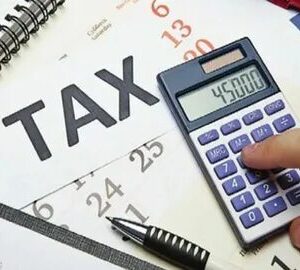

READ MORE: Best High-Yield Savings Accounts for 2025: Maximize Your Interest Earnings.
Outline
Top Tax Deductions Every Freelancer Must Know in 2025
Introduction
- What is Freelancing?
- Why Tax Deductions Matter for Freelancers
Understanding Tax Deductions for Freelancers
- What Are Tax Deductions?
- How Freelancers Can Benefit from Tax Deductions
Common Tax Deductions for Freelancers
- Business Expenses
- Home Office Deduction
- Vehicle Expenses
Freelancers and Self-Employment Tax
- What is Self-Employment Tax?
- Tax Deduction for Self-Employed Individuals
Top Tax Deductions Available to Freelancers in 2025.
1. Business Expenses
- Office Supplies
- Software Subscriptions and Tools
- Marketing and Advertising Expenses
2. Home Office Deduction
- Qualifying for the Home Office Deduction
- How to Calculate Your Home Office Deduction
3. Vehicle Expenses
- Standard Mileage Rate vs Actual Expenses
- How to Keep Track of Mileage
4. Health Insurance Premiums
- Deducting Health Insurance Costs
- The Self-Employed Health Insurance Deduction
5. Retirement Contributions
- Setting Up a Retirement Plan as a Freelancer
- Tax Benefits of Retirement Contributions for Freelancers
6. Education and Training
- Deducting Courses, Workshops, and Seminars
- How Freelancers Can Invest in Their Skills and Save Taxes
7. Professional Services
- Tax Deductions for Legal and Accounting Services
- When to Hire a Tax Professional
8. Travel Expenses
- Deducting Travel Costs for Business Purposes
- What Counts as a Business Trip?
9. Equipment and Depreciation
- Depreciating Business Assets
- Common Equipment Deductions
10. Internet and Phone Bills
- How to Deduct Communication Expenses
- Keeping Track of Business-Related Usage
11. Insurance Premiums
- Deducting Business Insurance
- Types of Insurance You Can Deduct
12. Meals and Entertainment
- Deductions for Business Meals
- What Meals Are Deductible?
13. Rent and Lease Payments
- Deducting Rent for Business Space
- What If You Rent Equipment or Other Assets?
14. Taxes and Licenses
- Deducting State and Local Taxes
- Business Licenses and Fees as Deductions
15. Interest and Bank Fees
- Deducting Interest on Business Loans
- Bank Fees for Business Accounts
Key Tax Tips for Freelancers in 2025
- Record Keeping Best Practices
- Maximizing Your Deductions
- How to Avoid IRS Audits
Conclusion
- Recap of the Top Tax Deductions for Freelancers
- Final Tax Tips for Success
FAQs
- Can I claim tax deductions for freelance work if I work from home?
- How can I reduce my self-employment taxes?
- Can I deduct my health insurance premiums as a freelancer?
- What if I don’t keep proper records of my expenses?
- How do I know if a business expense is deductible?
Essential Top Tax Deductions for Freelancers in 2025.

READ MORE: Uncovering the Secret Tax Deductions: A Freelancer’s Guide to Maximizing Savings in 2025
Introduction
As a freelancer, managing your finances and taxes can feel overwhelming. But with the right knowledge, you can minimize your tax burden and maximize your earnings. One of the most effective ways to do this is by taking advantage of tax deductions available to freelancers. These deductions can significantly lower your taxable income, allowing you to keep more of your hard-earned money.
In this post, we’ll dive deep into the top tax deductions for freelancers in 2025. Whether you’re a freelance writer, graphic designer, or consultant, understanding these deductions can make a big difference to your bottom line.
Understanding Tax Deductions for Freelancers
Before we get into the specific tax deductions, let’s take a moment to understand what tax deductions are and how they benefit freelancers.
What Are Tax Deductions?
Tax deductions are expenses that you can subtract from your total income to reduce the amount of income that is subject to tax. For freelancers, this means you can deduct business-related expenses that are necessary for running your freelance business.
How Freelancers Can Benefit from Tax Deductions
Freelancers typically pay both income tax and self-employment tax. By taking advantage of tax deductions, you can lower the total amount of tax you owe. Understanding which expenses are deductible—and keeping good records—will help you maximize your savings and avoid overpaying taxes.
Common Tax Deductions for Freelancers
As a freelancer, you have several common tax deductions available. Here are a few of the most popular:
Business Expenses
Business expenses are the costs you incur to run your freelance operation. These can include office supplies, software tools, and marketing costs. Many of these expenses are fully deductible, meaning they can lower your taxable income dollar-for-dollar.
Home Office Deduction
If you work from home, you can claim the home office deduction, which allows you to deduct a portion of your rent or mortgage, utilities, and other home-related expenses based on the percentage of your home used for business purposes.
Vehicle Expenses
If you use your car for business, you can deduct expenses related to its use. This can include mileage, gas, repairs, and even car insurance. There are two methods for calculating these deductions: the standard mileage rate and the actual expense method.
Freelancers and Self-Employment Tax
What Is Self-Employment Tax?
Self-employment tax is a tax that covers your contributions to Social Security and Medicare. As a freelancer, you’re responsible for paying both the employee and employer portion of these taxes, which can add up quickly.
Tax Deduction for Self-Employed Individuals
The good news is that you can deduct the employer portion of your self-employment taxes (50%) when calculating your taxable income. This can significantly reduce your taxable income and, therefore, your tax liability.
Top Tax Deductions Available to Freelancers in 2025
Now, let’s explore the top tax deductions you can take advantage of in 2025.
1. Business Expenses
Freelancers can deduct any expenses that are directly related to running their business. This includes:
- Office Supplies: Pens, paper, printers, and other supplies used for your work are fully deductible.
- Software Subscriptions and Tools: If you subscribe to software for your work (e.g., design software, project management tools), you can deduct these costs.
- Marketing and Advertising Expenses: Whether you’re paying for online ads or printed flyers, marketing costs are deductible.
2. Home Office Deduction
If you work from home, you may be eligible to claim the home office deduction. To qualify, the space must be used regularly and exclusively for business purposes.
- How to Calculate Your Home Office Deduction: You can either use the simplified method, which provides a standard deduction based on square footage, or the regular method, where you calculate actual expenses such as mortgage interest, utilities, and home insurance.
3. Vehicle Expenses
If you use your car for business purposes, you can deduct:
- Standard Mileage Rate vs Actual Expenses: The IRS offers a standard mileage rate (58.5 cents per mile in 2025) that you can use to calculate your vehicle expenses. Alternatively, you can deduct the actual cost of gas, repairs, and insurance.
- How to Keep Track of Mileage: Keep a log of your business trips, including the miles driven and the purpose of each trip.
4. Health Insurance Premiums
If you’re a freelancer, you can deduct your health insurance premiums. This includes insurance for yourself, your spouse, and dependents. The deduction is available even if you don’t itemize your deductions.
5. Retirement Contributions
Setting up a retirement plan is a smart move for freelancers. Contributions to certain retirement accounts, such as a SEP IRA or Solo 401(k), can be deducted, which lowers your taxable income.
6. Education and Training
Freelancers who invest in their professional development can deduct the cost of courses, workshops, and certifications related to their business.
7. Professional Services
If you hire professionals like accountants or lawyers, their fees are deductible. This can include the cost of preparing your taxes, creating contracts, or consulting for your business.
8. Travel Expenses
If you travel for business, you can deduct:
- Transportation Costs: Airfare, car rentals, and public transportation are deductible if they are related to business travel.
- Lodging and Meals: You can deduct the cost of hotel stays and meals while traveling for business purposes.
9. Equipment and Depreciation
When you purchase equipment (like a laptop or camera), you can either deduct the full cost in the year of purchase or depreciate the cost over several years.
10. Internet and Phone Bills
If you use the internet or a phone for business purposes, you can deduct a portion of these expenses based on the percentage of business use.
11. Insurance Premiums
Freelancers can deduct business-related insurance premiums, including general liability insurance, professional liability insurance, and even workers’ compensation insurance.
12. Meals and Entertainment
You can deduct 50% of the cost of business meals if they are directly related to your work. This includes meals with clients, potential clients, and business partners.
13. Rent and Lease Payments
If you rent an office space or equipment, you can deduct these payments. The same goes for leasing business-related property.
14. Taxes and Licenses
State and local taxes, business licenses, and fees are deductible.
15. Interest and Bank Fees
Interest on business loans and fees for business bank accounts are deductible as business expenses.
READ MORE: Freelancer Tax Savings: Essential Expense Deductions for 2025 – FileLater
Key Tax Tips for Freelancers in 2025
Here are some key tips to help you optimize your taxes and avoid pitfalls:
- Record Keeping Best Practices: Keep detailed records of all your expenses. Consider using accounting software like QuickBooks or FreshBooks to track everything.
- Maximizing Your Deductions: The more expenses you can document, the lower your taxable income will be. Be sure to claim everything you’re eligible for.
- How to Avoid IRS Audits: Keep thorough records, report all income, and avoid claiming excessive deductions that aren’t directly related to your business.
Conclusion
Tax deductions are a powerful tool for freelancers. By understanding the deductions available to you and keeping good records, you can significantly lower your tax burden. From business expenses to vehicle costs, health insurance, and retirement contributions, every little bit helps.
FAQs
- Can I claim tax deductions for freelance work if I work from home?
Yes, you can claim the home office deduction if you use part of your home exclusively for business. - How can I reduce my self-employment taxes?
By claiming deductions like the self-employment tax deduction and contributing to retirement plans, you can reduce your self-employment tax liability. - Can I deduct my health insurance premiums as a freelancer?
Yes, you can deduct the cost of health insurance premiums for yourself and your family. - What if I don’t keep proper records of my expenses?
It’s crucial to keep detailed records. Without them, you may miss out on deductions, or worse, face penalties in case of an audit. - How do I know if a business expense is deductible?
Generally, if the expense is necessary and ordinary for your business, it is deductible. Consult with a tax professional for guidance.






This Post Has 2 Comments